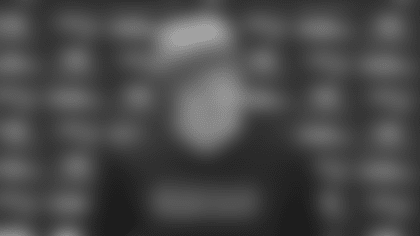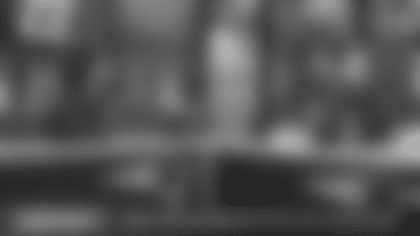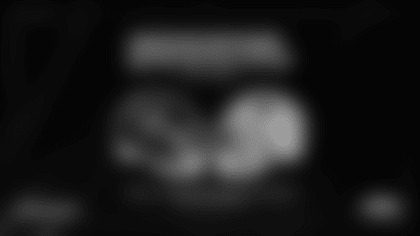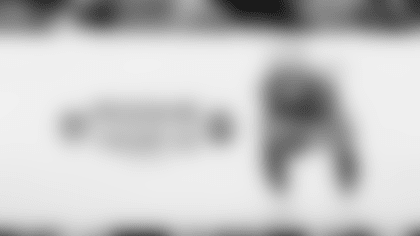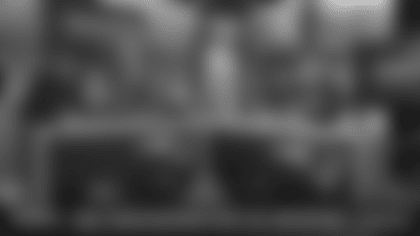PATRIOTS HEAD COACH BILL BELICHICK PRESS CONFERENCE
BB: Good morning. How are we doing? What's the big story today?
Q: What have you noticed about Jabaal Sheard's off the field approach?
BB: Good, really professional, works hard, trains hard. He's got good skills, got good playing strength, good technique. He does a good job and he's fit in well. He's been a good teammate. Guys really like working with him, coaches. He's given us a lot of versatility.
Q: Do you address players like him that haven't been in the playoffs before?
BB: I mean look, I talk to the team every day. We talk about things that are pertinent. There are a lot of guys that haven't been in playoff games before, like that's not a new story – [Tom] Brady's first playoff game, Malcolm Butler last year. We talk about it every year. You can find somebody.
Q: How has Dont'a Hightower progressed as a leader?
BB: He's got really good skills. He gets along well with everybody. He's got a good personality with the defensive line, other linebackers. It's kind of been a different situation with Jerod [Mayo] being out the last couple years at a certain point in the season, being there and then not being there, and then this year he's been there all the way through, so Jerod has a presence as well, as does Jamie [Collins], so we've kind of gotten I would say cumulatively a lot from that position, in addition to guys like Dwight Freeny – I mean Jonathan Freeny, sorry, I've got Dwight on my mind – Jonathan Freeny. That's been really a good solid group for us overall, and Dont'a is a big part of that, especially as a signal caller and communicating adjustments or calls from Matt [Patricia].
Q: How much have you seen the use of analytics grow in football over the last several years and what can they be useful for?
BB: Yeah, I don't know. It's not really a big thing with me. I'm sure you can go to the [MIT Sloan Sports] Analytics Conference or whatever it is they have here in the summer or spring, whenever it is, and get your fill of it. I'm sure there's a lot there.
Q: Do you guys employ more math-side people to help you analyze schemes and trends?
BB: No. I mean we do some of it. I'm sure we do a lot less than what other people do. It's not really my thing.
Q: Does Matt Patricia come up with anything?
BB: Look I've done things all the way back to when I was with the Giants and before that just doing them by hand, but I mean look if you're out there coaching every day, to me if you can't see an 80 percent tendency then like what are you looking at? Now is it 51-49, 49-51? I don't know. What are you going to do with that? Do you want to bet on 51, do you want to bet on 49 or bet on 55 or 45? At that point, what's the difference? I don't see a big difference, and I certainly wouldn't want to bet on 55 and just take my chances on 45. You've got to play it straight. But I mean honestly I think if an experienced coach can't see 80-20 or 90-10, I mean I don't think that's very good.
Q: With that in mind, is film still the biggest tool you use preparing for a game?
BB: It's one tool. I mean you break it down and you take information from that. Ultimately that's where it comes from, but there are other components of it.
Q: Like, as in?
BB: Like your personal experience, who the play callers are on the other side of the field – there is a philosophy that they have, which it's on film but there may be other sources of information on that – so who's calling the plays, what their philosophy is, what they're trying to do, what the skills of the players are, which again is verified on film, but ultimately you've got to watch something, so you watch them on film. If you have personal experience seeing a guy live, whether it be as an opponent or in a practice or in college or whatever it is, I guess that plays into it, too.
Q: Akiem Hicks has taken a leap these last couple weeks. Is that because of an increased role or because of him becoming more comfortable in the system?
BB: Well I think what Akiem was doing in New Orleans, particularly this year because we practiced against them down there, watched him pretty closely, I'd say what he's doing here is a little different than what he was doing down there, so there's certainly an acclimation. And systematically I'd say we're different than what Rob [Ryan], who was the coordinator at that time, so what Rob was running down there and where Akiem was playing in those defenses was a little bit different from what we're doing. I think he's kind of gotten better each week with the communication, the understanding of the game plan. We change things a little bit fairly regularly, so there is definitely an element of game planning and things we do specific to one team that don't necessarily carry over from the week before, so I think that's an adjustment for a lot of players that come in here. But he's done a good job, he works hard, he's certainly improved and gotten a lot better in all those areas. There is still room to go, but he's made a lot of progress.
Q: Is there anything you've learned about Akiem that you didn't know about him before in terms of his position versatility?
BB: Well I think he has versatility. He's played outside. He's played end, he's played out at five-technique and he's played all the way in to the zeros. For us we've played him more inside because that's where we want him to play, but could he play outside or have we ever put him out there? We have, but not very often. The majority of his plays have come on the inside part of the defense and from what we want him to do and what he's worked on, that's been his bigger role for us. But could he do other things? Yeah, I'd say absolutely. And he did them – we saw him do them when we practiced against him in New Orleans. It's just a question of what we want him to do versus what they want him to do, and I'd say in this case it's a little bit different, but he's been able to do multiple things.
Q: How have you found coaching Steven Jackson?
BB: Great, he's great to coach, works hard. You would think he's a rookie – he's just trying to soak everything in, understand everything as well as he can. He practices hard, he runs scout team, does the things he needs to do to improve and work on some things he hasn't been able to do in months when he was working out but not playing football, so he's trying to take advantage of all those opportunities. He's been great, he's got a great attitude and he's picked things up well and has gotten better. Really literally every day he walks of the field is better than it was the day before, including the games, which again are limited, but hopefully there will be more of them.
Q: Did you know that he made up his mind that he wasn't going to play anymore and then you guys called a day or two later?
BB: No, I wasn't aware of that. When I talked to him, we had a conversation about it and then we followed up and had another conversation and then there were certain steps we took after that. But yeah, I mean I'd say with him, I've relied on my personal conversations, which went back to pre-draft and then there have been a couple along the way and then obviously more recently. But yeah, I rely on that rather than like some media report or some other third party that's trying to relay information. I'd rather just talk to the person directly and have a straightforward conversation. I know that's not really the way a lot of people like to do things, but that's the way I prefer.
Q: He relayed the story of when you called him on the Patriots All Access show, and he asked if he could get back to you because he wanted to make sure he was ready to be in football shape. Has that ever happened to you before where a player says something like that?
BB: Again for guys that aren't playing football, they're just training or working out or staying active or whatever you want to call it, there's a difference between doing that and playing football and going back to doing football-type drills. It's a little bit different. I wouldn't say it's that … I mean it's different, but it's the same as a player who's injured. A player who's injured who's coming back off an injury goes through the progression of running in the pool, running on an AlterG or something that keeps their full weight from being put on to let's say it's a lower body injury, they do some stepper or whatever it happens to be, and then at some point, OK, so now you've got to go out there and play football, well it's not the same as just burning calories or working out or breaking a sweat or getting your body back to doing normal activities. Playing football is very specific, so again it's a natural progression for us to take anyways. We don't take a guy who's injured and start him out and do the football-position-specific drills he'd be doing. We go through a progression. So I don't think it's really that unusual. And guys coming out of retirement or guys coming off of an extended period of inactivity – football inactivity, not life inactivity, but football inactivity – then that's the next step is to look at football-specific drills.
Q: How important has Rob Ninkovich been to this defense over the last six or seven years?
BB: Rob has played a strong role for us. I think his selection by his teammates as a captain reflects kind of the leadership or the respect that he has amongst them. But Rob has been a really versatile guy for us. He's played kind of like [Mike] Vrabel at the end of the line primarily, but he's played inside linebacker, he's played defensive end, he's played in the kicking game. He did a lot of the things like Mike did that you need somebody to do on your defense somewhere along the line because of the different offenses we face and some of the different schemes we use. You can't move 11 guys around but sometimes you can move one or two and create that. That's been important. I mean to come back to [a previous question], it was kind of the same thing with Junior [Seau] – he was out and then he was doing the bull riding or whatever the [heck] it was and surfing and all that, and then there is the re-acclimation to football. I remember us doing that out in San Jose when we were out there after the Seattle game, whenever it was. There is definitely an element of that for that type of player, that type of situation.
Q: He hasn't missed a game since 2009.
BB: Very durable, very dependable, which look durability is more important than ability in this league, and not only has he not missed a game – he's barely missed a practice. He's out there every day, and so that builds the communication and consistency with your defense, with his teammates, with everything. It's a guy that you just don't even think about not being out there because he's always out there. That's huge in the overall development of your team or particularly that unit. But you know Rob started off with a bigger role in the kicking game and then that's diminished somewhat. But again like going back to the Green Bay game last year where he stepped in and snapped in that game, without that, that could cost you the game right there. So to have somebody as dependable as he is to be able to take on that kind of a specific role – you never know if you're going to need it and you hope you don't need it – but if you ever need it and you don't have it, the other 52 guys, you're in a lot of trouble. There are things like that that are kind of not recognized or not recognized as much that he really is valuable.
Q: How long does it take you to make the decision of whether a player like Steven Jackson or Junior Seau has enough in the tank to contribute?
BB: Yeah, that's a good question. I mean look it comes in stages, so you're not going to go from zero to 100 in a day. I think whatever the first look is or maybe it's a second look, but at that point you feel like, Ok well we want to continue or we don't. And that may mean we don't want to do it now, you need to go back and do more, let's take another look at it, or maybe it's like, OK it's just too far to go here and the player feels like it's too far, you feel like it's too far and you just don't pursue it. I think like the initial, whether it's one time or two times, whatever it is, the relatively initial part of it you make a determination as to whether you want to go forward with it. Sometimes you go forward and it gets to a point where it's workable and then sometimes you go forward and you get to a point where it just doesn't work out. And we certainly have multiple examples of both of those, so I don't think there is any set … I think after a certain period of time you're going to reach some type of leveling off point and then you have to decide at that point, is that good enough or is it not going to be good enough. Once you see that this is what it's going to be, either you're happy with it and it's good enough to continue or it's not going to get any better, it's below the line and it's just not going to work and you have to move on. But that takes a certain period of time. It's not a day or an hour workout. There's got to be somewhat of a progression there.
Q: Has your attitude on watching games this weekend changed over the years?
BB: No.
Q: In the past you've said you just wait until the All-22 tape comes in.
BB: I mean look if you watch the game you can follow it just to watch it, and obviously you're going to be playing one of the two teams or could be depending on – in this case we have three to choose from – but if there's situational plays that come up in the game, which there always are, it's sort of interesting to follow those – like what would we do or what are they doing in that situation or whatever look you get at it. But I mean if there are 100 things, like to me that would be no higher than one. It wouldn't be 10. It wouldn't be 20 – somewhere between zero and one probably for me. So if you didn't see the game, which there are hundreds of games that we haven't seen. We're playing our game, they're playing their game, we play them next week, we don't see that. There are a lot more games that I haven't seen than I have the week before we play the game. So again that's what I'm saying, like 99 percent of the time, 90 percent of the time, we're not going to see it. And that's OK, we're still going to show up and play anyways. And then the few times we get to see it, we see it, OK, and it adds maybe that one quarter or one percent, I don't know, it's not very much.
Q: How has Brandon LaFell's season gone overall?
BB: Brandon has really pushed through. Being on PUP, he had a little bit of extra time in terms of starting right at the beginning of the season, but any time you come in at the middle of the year without the full training cycle, the offseason and training camp and all that, you're always playing catchup. You might marginally close the gap, but it's never really the same as having that whole period there. Mentally and schematically and all that, I think that's caught up. Physically, it's improving. It's certainly good enough to be competitive. Is it as good as it would be with all the other prior training in place? No, I don't think so. But I mean look if that was the case, then like why do we go to training camp? Why do we have an offseason training program? That's the benefit of all those guys being able to do that.
Q: The injuries were a hurdle, but also with other guys at the position being injured did that kind of change his role a bit?
BB: Yeah, well I mean look that's football. Roles change every week whether we change them or somebody else changes them or the defense, their adjustments change them. That's football, so you have to be able to handle different situations. You can't just run one route or just do one thing. You're going to have to be able to do multiple things and handle multiple situations. But we all have to deal with that. You can't just – not in this league – you're not going to be able to throw 30 screen passes. If they take that away you have to throw something else. You can't throw 30 go-routes. If they take that away you have to do something else. That's true for each individual player, too.
Q: What has your message to the team been this week considering you don't know who you're going to play?
BB: We want to play our best football next Saturday night. I mean what else is there?
Q: Is this week any different because you don't have an opponent to prepare for?
BB: We want to prepare to play our best football next Saturday night. Whatever we can do, we can do. Yeah, there are things we don't know obviously, and there is no way to get ready for three teams. It's hard enough to get ready for one team, so what we're going to do is try to do the best that we can and prepare ourselves to play the best that we can play and coach next Saturday night. I mean I don't know what else is there to talk about other than the specifics of doing it. We need to coach and play our best game next Saturday night.
Q: Is the difference between regular season and postseason similar to the difference between preseason and regular season?
BB: I don't know about that. I mean look the thing in the postseason is every team is a good team. You're not going to be in the postseason if you're not a good team, and whoever we play next week is going to be a team that's not only a good team, but they will have won a playoff game. So it doesn't matter who that team is, however that comes out, that team will be a good team, they will have a lot of confidence, they will have won a playoff game and they are a good team. So for us to beat them we're going to have to play our best game of the year. That's our approach to this week, that will be our approach next week is how do we play our best game of the year against whoever that happens to be knowing that they're good. In preseason, everybody is trying to get ready for the regular season. I mean I don't know who's good and who isn't. I'd say a lot of the opening games, I wouldn't say we've been particularly good and a lot of our opponents haven't been particularly good. That's where it is at that point in the year. Now everybody's had a lot of opportunity, the best teams are still standing, there will be fewer of them next week, we'll be facing one of them, and we'll have to be at our best. I think it's a lot more competitive than it is opening day – not that opening day is not competitive, I don't mean that – but in the overall picture you're talking about the best teams in the league playing with everything at stake, nothing to hold back for, there is no game next week like there is opening day for the loser, so yeah this is competition at its highest level right here.
Q: Is this week a continuation of the self-scouting process or do you back and re-watch things from earlier in the year?
BB: It depends on what it is. Yeah, we could. It depends on what the situation is. If you want to look at screen passes this year, I don't know how many screen passes that we've defended the last three weeks – five, six. Maybe you watch all 30 of them rather than just the last few. Maybe there is a different thing you just kind of look at the last three or four weeks. It depends on what it is, what you're looking for, what you're trying to accomplish, what the question is. It could be any of those. I mean look we've gone back in other years, gone back and in some cases we don't go back more than two weeks because we don't really care what happened. This particularly thing is about where we are right now – the last one to two weeks, these two or three guys working together, these two or three guys doing this. I don't really care how Matt Light and Logan Mankins did it. OK, it's not relevant. What's relevant is these two guys or whoever it happens to be.


